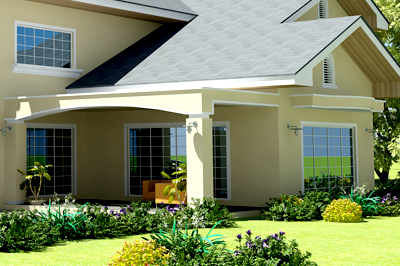Land litigation remains one of the major problems in Ghana. Lately, issues regarding land have been on the increase, and have made most of the headlines. There have been a lot of demolishing exercises carried out; land guards selling and reselling lands to people; flooding, and tidal waves invading lands in areas such as Glefe, a community near Dansoman, and all suburbs in Accra in the Greater Accra Region.
More often than not, buyers do less investigation to ascertain ownership of the land before purchasing. After thorough investigation, it comes into view that most lands sold out end up being a state acquired lands or for some original owners, but have been sold and re-sold to the poor victims by cunning chiefs and notorious land guards.
In a country like Ghana, land is a valuable asset – the reason being that they do not diminish or loose its value whichever the situation of the economy.
In planning to buy a land in Ghana, important steps must be taken to ascertain the ownership before even envisaging doing so.
Here are 6 practical steps to follow to avoid loosing your hard earned money:
- The Ghana Land situation - Please visit the site. It is essential that when you want to purchase a land, you first visit the plot and look out for the land and where it is situated. Find out whether it is near a refuse dump site or it is one itself. You must also check the surroundings to see if it's a desirable area you would want live, and also get to know if it is a water logged area. Usually, most lands in such areas are left likely to belong to government, purposefully left out for future projects.
- Ghana Land Social Amenities - A land would be better to acquire or buy if it has the major necessary social amenities, such as – the land being connected to a good road network, electricity from the national grid, pipe-borne or portable water, and sometimes a market. All these are necessities of human life that we cannot live without. Therefore, it is prudent that you have all these facilities around or in the area of the land you want to purchase. Often, the lands in these areas, where there are no facilities, are not demarcated and therefore may not be for sale.
- Ghana Land Chiefs and traditional leaders - In Ghana, most land disputes have been said to be caused by some chiefs and traditional leaders, as well as individuals who have self-imposed the name ‘land guards’ on themselves. Some of these chiefs and traditional rulers are in the habit of selling and re-selling lands to people, with mostly the aim of making ‘bad’ money. Many people have been victimised by their behaviours. They have cunning ways of doing this: for instance, if someone buys the land at $13,000, or GHC 31,200 at the time of writing and pays part of the money, or even pays all, but has not put the land to any use, these traditional authorities can resell the same land to a different buyer who can afford to pay much more money to the tune of $20,000 (GHC48,000), something like a ‘money show power’ system. One therefore, must check and be very sure that the land he wants to buy has not already been sold out. Don’t get scammed.
- Ghana Lands Commission - The buyer would also have to check with the lands commission to ascertain whether the land in question has already been registered in another buyer’s name or has already been sold out. Sometimes, the delay in the registration process on the behalf of the land commission causes the multiple sales of a land, and it also gives some greedy chiefs and land guards the opportunity to sell that same parcel of land to other unsuspecting people. In the event the land title has already been registered, refrain from buying it.
- Follow-Ups - After you, the prospective buyer have done your due diligence and checks to ensure that the land does not already belong to someone else, you must consult the town and country planning agency in the area, to be informed about the land.
For example, people who want to buy lands in Tema – and its nearby towns must consult the Tema Development Corporation (TDC). It helps the buyer to know if the land has been earmarked for a market place or it has been designated for a road construction.
The buyer would also know if the land is a government acquired property. This would save the buyer from future demolition after he had had to spend thousands of dollars to put up a house only for it to be demolished by an original owner or the government. Such demolitions do not come with any compensation, and this could be the greatest lost. - Ghana Court Endorsement of Land - Some lands could have injunction placed on them by a court, in the situation whereby its ownership is being claimed by two or more people. Such lands are not supposed to be bought by a new buyer if its proprietorship is being challenged in court. Therefore, it is advisable that you avoid such lands even if one of the alleged owners, a land guard or even a chief wants to sell it at a cheaper price to you. Beware that until the final decision by the court, that land remains untouched.
We can help! Let us purchase land for you and process all documentations. We have 100% success rate with no litigation issues. Our knowledgeable and qualified lawyers and personnel based in Ghana will handle your land needs for an affordable fee. Please contact us and let us know how we can help.
.





















